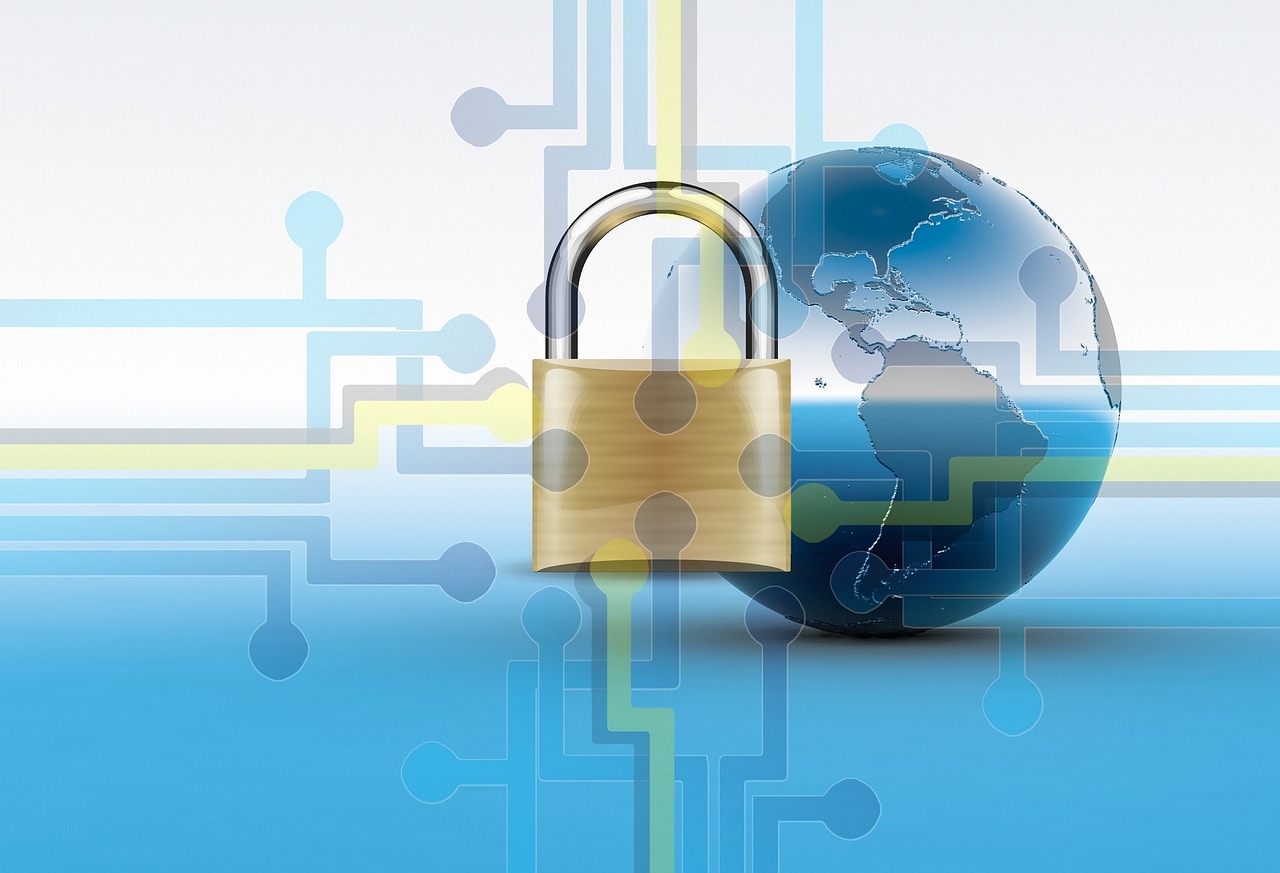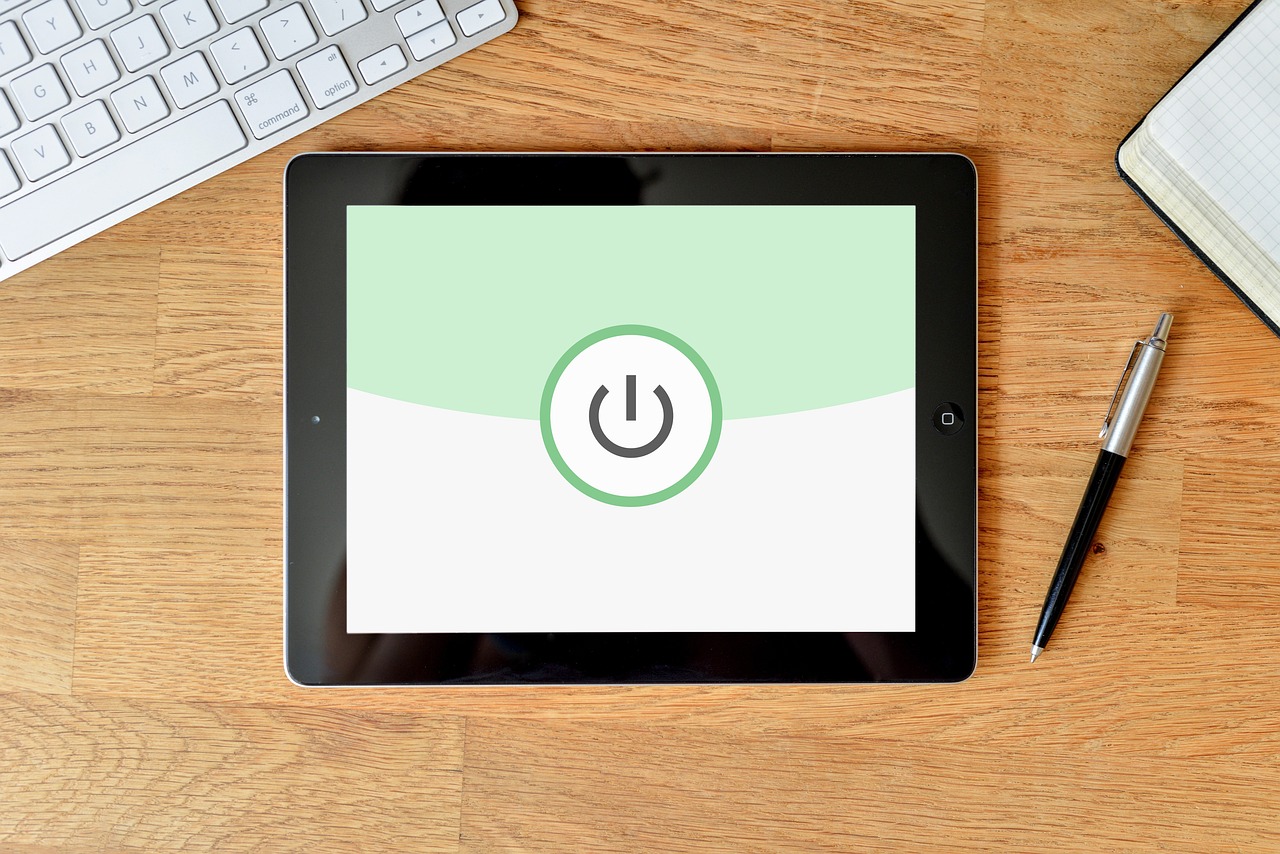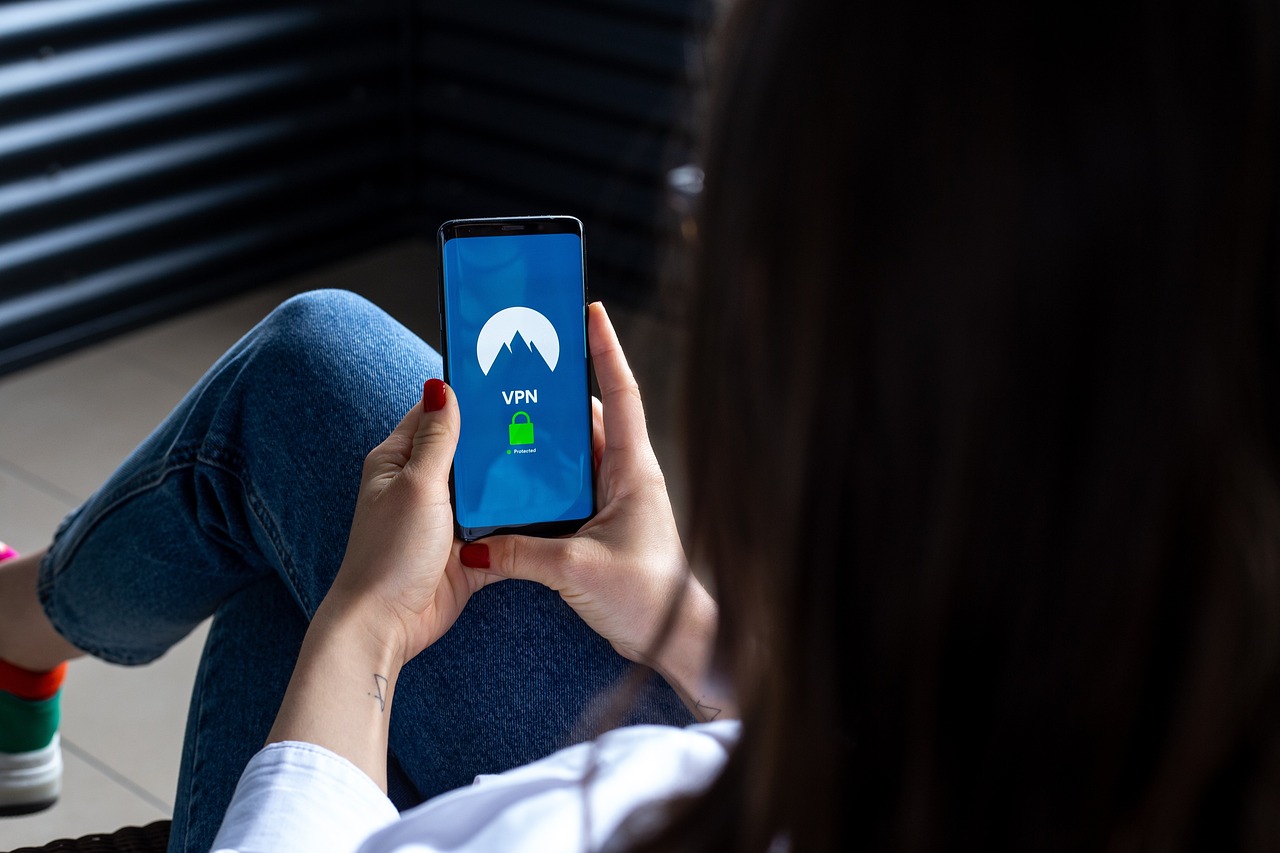Cybersecurity for Journalists - Protecting Confidential Sources
In today's fast-paced digital world, where information flows faster than ever, the role of journalists has evolved dramatically. While the internet provides a treasure trove of information, it also poses significant risks, especially when it comes to protecting confidential sources. The act of journalism often involves uncovering sensitive information that can put both the journalist and their sources in jeopardy. This is where cybersecurity becomes not just important, but absolutely essential. It's not just about safeguarding data; it's about ensuring that the voices of those who dare to speak out are protected from potential threats. With the rise of cyber attacks and data breaches, journalists must arm themselves with the knowledge and tools to defend against these digital dangers.
Imagine a world where a journalist's hard-hitting exposé is compromised because of a simple oversight in cybersecurity. What if a whistleblower's identity is revealed due to a phishing scam? Such scenarios highlight the dire need for journalists to be proactive in their cybersecurity measures. By understanding the landscape of threats and implementing robust strategies, they can continue to pursue the truth without fear. In this article, we will explore the critical importance of cybersecurity for journalists, the common threats they face, and the best practices to protect their confidential sources.
Understanding why cybersecurity is vital for journalists helps highlight the risks they face and the necessity of protecting their sources from potential breaches and threats in today's digital age. Journalists often operate in high-stakes environments where the information they handle can change lives, influence public opinion, and even challenge powerful entities. The stakes are high, and the consequences of a security breach can be devastating. Not only can it jeopardize ongoing investigations, but it can also put sources at risk of retaliation.
In addition to protecting their sources, journalists must also consider the integrity of their work. A compromised system can lead to misinformation being published, damaging reputations and eroding public trust. Therefore, cybersecurity isn't just a technical issue; it's a fundamental part of ethical journalism. By prioritizing cybersecurity, journalists can ensure that they uphold the principles of truth and integrity in their reporting.
Journalists encounter various cybersecurity threats including hacking, phishing, and surveillance. Recognizing these threats is essential for developing effective strategies to mitigate risks and protect sensitive information. In the digital realm, threats can come from various sources, including state actors, criminal organizations, and even disgruntled individuals. Each of these threats can have significant implications for the safety of journalists and their sources.
Phishing attacks are deceptive attempts to acquire sensitive information by masquerading as trustworthy entities. Journalists must be vigilant to avoid falling victim to these tactics that can compromise their sources. These attacks often come in the form of emails or messages that appear legitimate, urging the recipient to click on a link or provide personal information. The key to avoiding phishing is awareness and skepticism.
Identifying the signs of phishing emails is crucial for journalists. Common indicators include:
- Suspicious URLs: Always hover over links to see the actual URL before clicking.
- Unexpected Attachments: Be wary of attachments from unknown senders.
- Urgent Language: Phishing emails often create a false sense of urgency to prompt immediate action.
Implementing best practices such as verifying sender identities and using email filters can significantly reduce the risk of falling for phishing scams. Always double-check the sender's email address and be cautious of any requests for personal information.
Malware and ransomware pose significant threats to journalists, potentially leading to data loss or unauthorized access to confidential information. Understanding these threats is key to effective prevention. Malware can infiltrate systems through seemingly harmless downloads, while ransomware can lock critical files until a ransom is paid. Journalists must be equipped with the right tools and knowledge to defend against these malicious attacks.
Utilizing secure communication tools can enhance the protection of confidential sources. Journalists should explore various options to ensure their conversations and data remain private and secure. In an age where communication can be easily intercepted, utilizing encrypted platforms is no longer optional; it's a necessity.
Encrypted messaging apps provide a secure platform for journalists to communicate with sources, ensuring that conversations remain confidential and protected from unauthorized access. Apps like Signal and WhatsApp offer end-to-end encryption, making it difficult for anyone to eavesdrop on conversations.
Using secure email services that offer end-to-end encryption can help journalists protect sensitive communications from interception and unauthorized access, safeguarding the integrity of their work. Services like ProtonMail and Tutanota are designed with privacy in mind, making them ideal for journalists handling sensitive information.
Implementing best practices for data protection is essential for journalists to safeguard their work and sources. This includes regular updates, strong passwords, and data encryption. By taking these proactive steps, journalists can significantly reduce their risk of falling victim to cyber threats.
Keeping software and applications up to date is crucial for protecting against vulnerabilities. Regular updates help mitigate risks associated with known security flaws. Many cyber attacks exploit outdated software, making it imperative for journalists to stay current.
Adopting strong password management practices, such as using complex passwords and password managers, can significantly enhance the security of sensitive accounts and information. A strong password is like a sturdy lock on your front door; it keeps unwanted intruders out.
Understanding the legal landscape surrounding cybersecurity is vital for journalists. This includes knowledge of laws related to data protection, privacy rights, and the implications of breaches. Being informed about these laws can help journalists navigate the complexities of their responsibilities in protecting sensitive information.
Familiarity with data protection laws helps journalists navigate the legal responsibilities they hold in safeguarding their sources and handling sensitive information. Laws like GDPR in Europe and various state laws in the U.S. set standards for how personal data should be treated.
Understanding the potential legal implications of data breaches is crucial for journalists. Breaches can lead to legal repercussions, loss of credibility, and compromised sources. It's essential for journalists to recognize that their actions in safeguarding information not only protect their work but also uphold their ethical obligations.
Q: What are the best practices for journalists to protect their sources?
A: Journalists should use encrypted communication tools, maintain strong password practices, and stay updated on software to protect their sources effectively.
Q: How can journalists recognize phishing attacks?
A: Signs of phishing include suspicious URLs, unexpected attachments, and urgent language that prompts immediate action.
Q: Why is cybersecurity important for journalists?
A: Cybersecurity is essential for protecting confidential sources, ensuring the integrity of reporting, and maintaining public trust in journalism.

The Importance of Cybersecurity for Journalists
In today's fast-paced digital world, the role of a journalist has evolved beyond simply reporting the news. With the rise of technology, journalists are now at the forefront of a battle for information security, making cybersecurity more important than ever. The very essence of journalism relies on trust, and when confidential sources are compromised, it not only jeopardizes individual stories but also undermines the integrity of the entire profession.
Journalists often handle sensitive information that can have serious implications if leaked. This includes data about whistleblowers, government secrets, or corporate malfeasance. The protection of these sources is not just a professional obligation; it's a moral one. Imagine being a whistleblower, risking everything to expose wrongdoing, only to have your identity revealed due to a cyber breach. This is a reality many journalists face, making cybersecurity not just an option, but a necessity.
Furthermore, the threats to journalistic integrity are numerous and varied. From hacking attempts aimed at stealing information to phishing schemes designed to trick journalists into revealing sensitive data, the landscape is fraught with danger. The consequences of inadequate cybersecurity can be dire, leading to a loss of trust from sources, legal repercussions, and even personal safety risks for journalists. Therefore, understanding these risks and implementing robust cybersecurity measures is crucial.
To illustrate the gravity of the situation, consider the following:
| Threat Type | Potential Impact |
|---|---|
| Hacking | Loss of sensitive information, damage to reputation |
| Phishing | Unauthorized access to accounts, data breaches |
| Surveillance | Compromise of source confidentiality, legal issues |
Equipping oneself with knowledge about these threats is the first step toward creating a safer environment for journalistic work. Journalists must not only be aware of the risks but also proactive in adopting cybersecurity measures. This includes utilizing secure communication tools, implementing strong password management practices, and staying informed about the latest cybersecurity trends. By doing so, journalists can significantly reduce their vulnerability and protect the integrity of their work.
In conclusion, the importance of cybersecurity for journalists cannot be overstated. As they navigate the complexities of a digital landscape, it is essential for them to prioritize the protection of their sources and sensitive information. After all, the future of journalism—and the trust that comes with it—depends on their ability to safeguard the truth.

Common Threats to Journalistic Integrity
In the fast-paced world of journalism, where breaking news often comes with tight deadlines, the **integrity of information** is paramount. However, journalists face a myriad of threats that can compromise not only their work but also the safety of their sources. It's like navigating a minefield; one wrong step could lead to disastrous consequences. Understanding these threats is crucial for developing effective strategies to mitigate risks and protect sensitive information.
Among the most prevalent threats are hacking, phishing, and surveillance. Each of these poses unique challenges that journalists must be prepared to confront. For instance, hacking can lead to unauthorized access to sensitive files, while phishing schemes often trick individuals into revealing confidential information. Moreover, surveillance tactics can be employed by various entities to monitor communications, thereby endangering the confidentiality of journalistic sources.
Let's break down some of these common threats:
- Hacking: The act of infiltrating computer systems to steal, alter, or destroy data. Journalists often store sensitive information on their devices, making them prime targets for cybercriminals.
- Phishing: Deceptive attempts to acquire sensitive information by masquerading as trustworthy entities. Journalists must be vigilant to avoid falling victim to these tactics that can compromise their sources.
- Surveillance: The monitoring of communications, which can be conducted by government agencies or malicious actors. This can lead to the exposure of confidential sources and sensitive information.
Recognizing these threats is the first step in a journalist's defense strategy. By understanding the tactics employed by cybercriminals and the potential vulnerabilities in their systems, journalists can take proactive measures to safeguard their work. For example, implementing robust cybersecurity protocols and utilizing secure communication tools can significantly reduce the risk of falling victim to these threats.
In conclusion, the threats to journalistic integrity are real and ever-present. By staying informed and adopting best practices, journalists can protect not only their work but also the individuals who trust them with sensitive information. After all, the ability to report the truth without fear of retribution is what keeps journalism alive and thriving in a world increasingly fraught with danger.
Q1: What is the biggest cybersecurity threat to journalists?
A1: The biggest threats include hacking, phishing, and surveillance. Each poses unique risks that can compromise sensitive information and the safety of sources.
Q2: How can journalists protect themselves from phishing attacks?
A2: Journalists can protect themselves by verifying sender identities, avoiding clicking on suspicious links, and using email filters to catch potential phishing attempts.
Q3: Are encrypted messaging apps safe for journalists?
A3: Yes, encrypted messaging apps provide a secure platform for communication, ensuring that conversations remain confidential and protected from unauthorized access.
Q4: What should journalists know about data protection laws?
A4: Journalists should familiarize themselves with data protection laws to understand their legal responsibilities in safeguarding sources and handling sensitive information.

Phishing Attacks
In the fast-paced world of journalism, where deadlines loom and information is constantly flowing, represent a significant threat to the integrity and safety of journalistic work. These deceptive tactics are designed to trick individuals into revealing sensitive information, often by masquerading as trusted entities. Imagine receiving an email that looks like it’s from your bank, asking you to verify your account details. It’s alarming how easily one can be lured into a trap, especially when the stakes involve protecting confidential sources or sensitive data. For journalists, falling victim to phishing can mean the loss of critical information, exposure of sources, or even legal repercussions.
Phishing can take many forms, from emails that appear to come from reputable organizations to fake websites designed to capture your login credentials. The art of deception is becoming increasingly sophisticated, making it crucial for journalists to remain vigilant. A common tactic involves creating a sense of urgency; for instance, an email may claim that immediate action is required to avoid account suspension. This pressure can cloud judgment, leading even the most cautious individuals to click on malicious links or provide personal information.
To better understand the landscape of phishing attacks, it’s essential to recognize the different types that journalists may encounter:
- Email Phishing: The most common form, where attackers send fraudulent emails that appear legitimate.
- Spear Phishing: A targeted attempt aimed at a specific individual or organization, often leveraging personal information to increase credibility.
- Whaling: A type of spear phishing that targets high-profile individuals, such as editors or senior journalists.
- Clone Phishing: Involves creating a nearly identical copy of a previously delivered email, but with malicious links or attachments.
Being aware of these tactics is the first step toward protection. Journalists should always be on the lookout for red flags in their communications. For example, if an email contains suspicious URLs, unexpected attachments, or urgent language urging immediate action, it’s time to pause and evaluate the situation. Rather than clicking on links directly from the email, it’s safer to navigate to the website manually. This simple practice can save a journalist from falling into a phishing trap.
In conclusion, while the digital landscape offers journalists incredible tools for information sharing and communication, it also comes with its fair share of risks. Phishing attacks are just one of the many cybersecurity threats that can undermine journalistic integrity. By staying informed and adopting proactive measures, journalists can protect themselves and their sources from these malicious schemes.
Q1: What is phishing?
Phishing is a cybercrime that involves tricking individuals into providing sensitive information by masquerading as a trustworthy source, typically through deceptive emails or websites.
Q2: How can I identify a phishing email?
Look for signs such as misspellings, suspicious URLs, unexpected attachments, and urgent requests for action. If it seems off, it’s best to verify the sender’s identity.
Q3: What should I do if I suspect a phishing attack?
Do not click on any links or attachments. Report the email to your IT department or email provider, and consider changing your passwords as a precaution.
Q4: Are there tools to help avoid phishing?
Yes, using email filters, security software, and browser extensions can help detect and block phishing attempts.

Recognizing Phishing Emails
In today's fast-paced digital world, where information flows at lightning speed, has become a crucial skill for journalists. These deceptive messages are designed to trick you into revealing sensitive information, and they can be incredibly convincing. So, how do you spot them before they lead you down a dangerous path?
First off, it's essential to understand that phishing emails often masquerade as legitimate communications from trusted sources. They might appear to come from your bank, a reputable news organization, or even a colleague. But don't be fooled! Here are some common indicators that can help you identify phishing attempts:
- Suspicious URLs: Always hover over links before clicking. If the URL looks odd or doesn't match the sender's domain, it's a red flag.
- Unexpected Attachments: Be wary of emails that include attachments you weren't expecting. These can often contain malware.
- Urgent Language: Phishing emails frequently use urgent language to create a sense of panic, pushing you to act quickly without thinking.
Another tactic employed by cybercriminals is the use of generic greetings. If an email starts with a vague "Dear Customer" instead of your name, it could be a phishing attempt. Legitimate organizations usually address you by name. Additionally, look out for spelling and grammatical errors, which are often present in phishing emails due to their hurried creation.
Moreover, consider the context of the email. If you receive a message that seems out of character for the sender, or if it requests sensitive information such as passwords or financial details, proceed with caution. A genuine organization will never ask for such information via email.
In conclusion, recognizing phishing emails is all about being vigilant and informed. By paying attention to the details and trusting your instincts, you can significantly reduce the risk of falling victim to these malicious schemes. Remember, when in doubt, it's always best to verify the sender's identity through a separate communication channel before taking any action!

Best Practices to Avoid Phishing
This article explores the critical importance of cybersecurity for journalists, focusing on strategies to safeguard confidential sources and sensitive information in an increasingly digital and vulnerable landscape.
Understanding why cybersecurity is vital for journalists helps highlight the risks they face and the necessity of protecting their sources from potential breaches and threats in today's digital age.
Journalists encounter various cybersecurity threats including hacking, phishing, and surveillance. Recognizing these threats is essential for developing effective strategies to mitigate risks and protect sensitive information.
Phishing attacks are deceptive attempts to acquire sensitive information by masquerading as trustworthy entities. Journalists must be vigilant to avoid falling victim to these tactics that can compromise their sources.
Identifying the signs of phishing emails is crucial for journalists. Common indicators include suspicious URLs, unexpected attachments, and urgent language that prompts immediate action.
To effectively guard against phishing attacks, journalists should adopt a proactive approach. One of the most significant steps is to verify the sender's identity before engaging with any email. This means checking the email address closely; often, phishing attempts will use addresses that look similar to legitimate ones but contain subtle differences.
Another essential practice is to hover over links before clicking. This simple action reveals the actual URL and can help identify any malicious sites. If the link seems off, it’s best to avoid it altogether. Additionally, journalists should avoid sharing sensitive information via email unless absolutely necessary. Instead, consider using secure communication platforms designed to protect privacy.
Using email filters can also be an effective way to reduce the risk of phishing. Many email providers offer options to filter out suspicious emails. By customizing these settings, journalists can automatically redirect potential phishing attempts to a spam folder, minimizing the chances of accidental exposure to threats.
Moreover, it’s crucial to maintain a mindset of caution. If an email demands immediate action or seems too good to be true, it likely is. A good rule of thumb is to pause and think before responding or clicking on any links. By fostering a habit of skepticism, journalists can better protect themselves and their sources from potential phishing scams.
Utilizing secure communication tools can enhance the protection of confidential sources. Journalists should explore various options to ensure their conversations and data remain private and secure.
Encrypted messaging apps provide a secure platform for journalists to communicate with sources, ensuring that conversations remain confidential and protected from unauthorized access.
Using secure email services that offer end-to-end encryption can help journalists protect sensitive communications from interception and unauthorized access, safeguarding the integrity of their work.
Implementing best practices for data protection is essential for journalists to safeguard their work and sources. This includes regular updates, strong passwords, and data encryption.
Keeping software and applications up to date is crucial for protecting against vulnerabilities. Regular updates help mitigate risks associated with known security flaws.
Adopting strong password management practices, such as using complex passwords and password managers, can significantly enhance the security of sensitive accounts and information.
Understanding the legal landscape surrounding cybersecurity is vital for journalists. This includes knowledge of laws related to data protection, privacy rights, and the implications of breaches.
Familiarity with data protection laws helps journalists navigate the legal responsibilities they hold in safeguarding their sources and handling sensitive information.
Understanding the potential legal implications of data breaches is crucial for journalists. Breaches can lead to legal repercussions, loss of credibility, and compromised sources.
- What is phishing? Phishing is a cyber attack that attempts to steal sensitive information by pretending to be a trustworthy entity.
- How can I identify a phishing email? Look for suspicious URLs, unexpected attachments, and urgent language in emails.
- What tools can I use to secure my communications? Consider using encrypted messaging apps and secure email services that offer end-to-end encryption.
- Why is strong password management important? Strong passwords protect sensitive accounts and reduce the risk of unauthorized access.

Malware and Ransomware
In the ever-evolving landscape of cybersecurity threats, malware and ransomware stand out as particularly menacing foes for journalists. These malicious software types not only compromise the integrity of sensitive information but can also lead to devastating consequences, including data loss and unauthorized access to confidential sources. Imagine waking up to find that all your critical documents have been encrypted, and the only way to regain access is to pay a hefty ransom to cybercriminals. Unfortunately, this scenario is not just a plot from a thriller movie; it’s a reality that many journalists have faced.
Malware refers to any software intentionally designed to cause damage to a computer, server, or network. It encompasses various types, including viruses, worms, and spyware. For journalists who often handle sensitive information, falling victim to malware can mean the exposure of confidential sources or unpublished stories. Ransomware, a specific type of malware, takes this threat a step further by locking users out of their systems until a ransom is paid. This can be particularly detrimental for journalists who rely on timely access to their data to report breaking news.
To illustrate the risks posed by these threats, consider the following statistics:
| Threat Type | Impact on Journalists |
|---|---|
| Malware | Data corruption, loss of sensitive information |
| Ransomware | Financial loss, compromised sources, halted reporting |
Understanding how to protect against malware and ransomware is crucial for journalists. Here are some effective strategies to mitigate these risks:
- Regular Backups: Always back up your data to an external drive or cloud service. This ensures that even if your system is compromised, you won't lose critical information.
- Antivirus Software: Invest in reputable antivirus software that can detect and neutralize malware before it causes harm.
- Awareness and Training: Stay informed about the latest cybersecurity threats and participate in training sessions to recognize potential attacks.
By implementing these strategies, journalists can significantly reduce their vulnerability to malware and ransomware attacks. Remember, in the world of journalism, protecting your sources and sensitive information is not just a best practice; it's a fundamental responsibility. The ability to report freely and without fear of retribution hinges on the security of your digital environment.
Q: What is malware?
A: Malware is a type of software designed to harm or exploit any programmable device or network. It includes viruses, worms, spyware, and ransomware.
Q: How can journalists protect themselves from ransomware?
A: Journalists can protect themselves by regularly backing up their data, using reliable antivirus software, and staying informed about the latest cybersecurity threats.
Q: What should I do if I fall victim to a ransomware attack?
A: If you fall victim to a ransomware attack, do not pay the ransom. Instead, disconnect your device from the internet, report the incident to law enforcement, and seek professional help to recover your data.

Secure Communication Tools
In the fast-paced world of journalism, where every second counts, maintaining the confidentiality of sources is paramount. As journalists, we often find ourselves in situations where sensitive information is shared, and the last thing we want is for that information to fall into the wrong hands. This is where come into play. Utilizing these tools not only protects our sources but also ensures that our journalistic integrity remains intact. So, what are these tools, and how can they be effectively used?
One of the most popular options for secure communication is encrypted messaging apps. These apps provide a safe environment for journalists to have conversations with their sources without the fear of being intercepted. Unlike traditional messaging platforms, encrypted apps use advanced encryption methods that scramble the message content, making it nearly impossible for anyone other than the intended recipient to read it. For instance, apps like Signal and WhatsApp offer end-to-end encryption, meaning that even the service providers cannot access the messages being exchanged. This level of security is essential in today's digital landscape, where cyber threats are rampant.
Another vital tool in a journalist’s arsenal is the use of secure email services. Regular email accounts can easily be compromised, exposing sensitive conversations to prying eyes. However, services like ProtonMail and Tutanota provide strong encryption protocols that protect emails from unauthorized access. When using these secure email services, journalists can communicate with their sources without worrying about email interception or data breaches. It's like having a virtual safe where your most sensitive information is stored away from those who would misuse it.
To illustrate the differences between standard and secure communication tools, consider the following table:
| Feature | Standard Communication Tools | Secure Communication Tools |
|---|---|---|
| Encryption | No encryption | End-to-end encryption |
| Data Privacy | Vulnerable to breaches | Highly secure |
| Access Control | Easy access for hackers | Restricted access to authorized users only |
As a journalist, adopting these secure communication tools is not just a precaution; it’s a necessity. However, it's important to remember that no tool is foolproof. Regularly updating your communication methods and staying informed about the latest security practices can further enhance your protection. So, before you hit send on that sensitive email or message, take a moment to consider the security of your communication tools. Are they robust enough to protect your sources?
1. What are the best encrypted messaging apps for journalists?
Some of the best options include Signal, WhatsApp, and Telegram. Each of these apps offers strong encryption and user-friendly interfaces.
2. How do secure email services differ from regular email providers?
Secure email services provide end-to-end encryption, ensuring that only the sender and recipient can read the messages, while regular email providers often do not offer this level of security.
3. Can I use secure communication tools on any device?
Yes, most secure communication tools are available on multiple platforms, including smartphones, tablets, and desktops, making them accessible wherever you are.

Encrypted Messaging Apps
In the fast-paced world of journalism, where sensitive information is often exchanged, have emerged as a vital tool for safeguarding communication. These applications utilize encryption technology to ensure that messages are only readable by the intended recipients, effectively shielding conversations from prying eyes. Imagine sending a note in class that only your best friend can read, while everyone else sees nothing but a blank piece of paper – that’s the essence of encryption!
For journalists, utilizing encrypted messaging apps is not just a matter of preference; it’s a necessity. With threats like hacking and surveillance lurking around every corner, journalists must prioritize the security of their sources. Apps like Signal, WhatsApp, and Telegram offer end-to-end encryption, meaning even the service providers cannot access the content of the messages. This level of security is crucial when dealing with confidential or sensitive information.
When choosing an encrypted messaging app, it’s important to consider factors such as usability, security features, and the app's reputation. Here’s a quick comparison of some popular options:
| App | End-to-End Encryption | Open Source | Self-Destructing Messages |
|---|---|---|---|
| Signal | Yes | Yes | Yes |
| Yes | No | No | |
| Telegram | Yes (Secret Chats) | No | Yes |
As you can see from the table, each app has its unique features. For instance, Signal is highly regarded for its commitment to privacy, being open-source and offering self-destructing messages. In contrast, while WhatsApp provides end-to-end encryption, it lacks some of the privacy-centric features found in Signal.
Furthermore, the ease of use cannot be overlooked. Journalists are often on the go, and having a user-friendly interface can make a significant difference. The right app should not only be secure but also intuitive, allowing for quick communication without the need for extensive technical knowledge.
In conclusion, encrypted messaging apps are essential tools for journalists aiming to protect their sources and sensitive information. By choosing the right app, journalists can communicate securely and confidently, knowing that their conversations remain private. Remember, in today’s digital landscape, taking proactive steps to secure communication is not just smart; it's a responsibility.
- What is end-to-end encryption? End-to-end encryption ensures that only the sender and the recipient can read the messages, preventing anyone else, including the service provider, from accessing the content.
- Are encrypted messaging apps completely secure? While encrypted messaging apps significantly enhance security, no system is entirely foolproof. Users should still practice caution and use additional security measures.
- Can I use encrypted messaging apps for group chats? Yes, many encrypted messaging apps support group chats while maintaining the same level of security for all participants.

Secure Email Services
In today's fast-paced digital world, where information flows at lightning speed, ensuring the security of your communications is more important than ever, especially for journalists. offer a robust solution for protecting sensitive information and maintaining the confidentiality of communications with sources. By utilizing these services, journalists can significantly reduce the risk of interception and unauthorized access to their emails, which is crucial for preserving the integrity of their work.
So, what exactly makes an email service secure? At the core, secure email services employ end-to-end encryption, meaning that only the sender and the recipient can read the messages. This encryption process ensures that even if someone were to intercept the email, they would not be able to decipher its contents. Additionally, many secure email providers offer features such as self-destructing messages, which automatically delete emails after a specified period, further enhancing privacy.
Here are some key features to look for in secure email services:
- End-to-End Encryption: Ensures that only the intended recipients can read the emails.
- Two-Factor Authentication: Adds an extra layer of security by requiring a second form of verification before accessing the account.
- No Data Logging: Providers that do not log user data help maintain privacy and ensure that your information isn't being tracked or sold.
- User-Friendly Interface: A simple, intuitive interface allows journalists to focus on their work rather than struggling with complicated software.
Some popular secure email services that journalists might consider include:
| Service Name | Key Features | Pricing |
|---|---|---|
| ProtonMail | End-to-end encryption, no personal information required, open-source | Free & Paid plans starting at $5/month |
| Tutanota | End-to-end encryption, calendar integration, open-source | Free & Paid plans starting at €1/month |
| Hushmail | Encrypted email, webmail access, HIPAA compliant | Paid plans starting at $5.99/month |
By choosing a secure email service, journalists can protect their communications from prying eyes, ensuring that their sources feel safe and secure when sharing sensitive information. This not only enhances trust but also fosters a more open dialogue, which is essential for investigative reporting. In a world where cyber threats are increasingly sophisticated, investing in secure email services is not just a choice; it’s a necessity for any journalist committed to protecting their sources and the integrity of their work.
- What is the difference between regular email and secure email? Regular email services may not provide encryption, making them vulnerable to interception. Secure email services use encryption to protect the content of your messages.
- Can secure email services be used for free? Yes, many secure email services offer free versions, although these may come with some limitations compared to their paid counterparts.
- Are secure email services easy to use? Most secure email services aim to provide user-friendly interfaces, making it easy for anyone to navigate their features without a steep learning curve.

Best Practices for Data Protection
In the fast-paced world of journalism, where every second counts and information is currency, data protection becomes a non-negotiable priority. Journalists handle sensitive information, and protecting this data is essential not just for their own safety but also for the safety of their sources. Implementing best practices for data protection can significantly mitigate risks and ensure that confidential information remains secure.
One of the fundamental steps in safeguarding data is to keep software and applications up to date. Regular software updates are crucial in defending against vulnerabilities. Cybercriminals often exploit known security flaws, and by neglecting updates, journalists leave their systems open to attacks. Think of it like locking your doors and windows; if you don't maintain them, you're inviting trouble. Therefore, setting up automatic updates can be a simple yet effective way to bolster your defenses.
Another critical aspect of data protection is strong password management. In an age where we juggle numerous accounts and platforms, using complex passwords can feel cumbersome. However, the importance of this practice cannot be overstated. Passwords should be unique, lengthy, and a mix of letters, numbers, and symbols. A password manager can help streamline this process, allowing journalists to generate and store secure passwords without the hassle of remembering each one. Remember, a weak password is like leaving your front door wide open—anyone can walk in!
Data encryption is yet another layer of security that journalists should consider. By encrypting sensitive files and communications, even if data is intercepted, it remains unreadable to unauthorized parties. This is akin to speaking in code; only those who possess the key can decode the information. Journalists can utilize various encryption tools available in the market to ensure their data stays private, adding a robust layer of protection against potential breaches.
Moreover, it's vital for journalists to be mindful of the devices they use. Whether working from a laptop in a coffee shop or a smartphone on the go, ensuring that these devices are secure is paramount. Utilizing VPNs (Virtual Private Networks) can provide an extra shield of security, especially when using public Wi-Fi networks, which are notoriously vulnerable to cyber threats. A VPN encrypts your internet connection, making it much harder for hackers to intercept your data.
Finally, ongoing education about cybersecurity threats is essential. The digital landscape is ever-evolving, and staying informed about the latest trends and threats can empower journalists to take proactive measures. Attending workshops, participating in online courses, or simply following reputable cybersecurity blogs can significantly enhance a journalist's ability to protect their data and sources effectively.
- What are the most common cybersecurity threats journalists face?
Journalists often encounter threats like phishing attacks, malware, and ransomware, which can compromise their work and sources.
- How can I recognize a phishing email?
Look for suspicious URLs, unexpected attachments, and language that creates a sense of urgency, prompting immediate action.
- Why is data encryption important?
Encryption protects sensitive data by making it unreadable to anyone who does not have the decryption key, ensuring confidentiality.
- How often should I update my software?
Software should be updated regularly, ideally set to automatic updates, to protect against known vulnerabilities.

Regular Software Updates
In the fast-paced world of journalism, where information is both a tool and a weapon, the importance of cannot be overstated. Keeping your software up to date is akin to locking the doors and windows of your home; it’s a fundamental step in protecting your most valuable assets—your sources and sensitive information. Outdated software often contains vulnerabilities that cybercriminals can exploit, leading to potential data breaches that could compromise your work and your sources' safety.
Imagine walking through a bustling city, and you notice a house with broken locks and open windows. You'd probably think twice before approaching it, right? Similarly, when your software isn’t updated, it signals to hackers that your digital space is an easy target. Software developers constantly release updates to patch security flaws, enhance functionality, and improve user experience. By neglecting these updates, you’re leaving your digital doors wide open for intruders.
Moreover, regular updates not only protect you from potential threats but also enhance the performance of your devices. When software runs smoothly, it allows you to focus on what truly matters—your reporting. For journalists, time is of the essence, and encountering a slow or malfunctioning application can be a frustrating setback, especially when deadlines loom. Keeping your software updated ensures that you have access to the latest tools and features that can streamline your workflow.
Here are a few key points to consider regarding software updates:
- Automatic Updates: Enable automatic updates whenever possible. This feature allows your software to update itself without requiring your intervention, ensuring you’re always protected.
- Regular Check-Ins: If automatic updates aren’t an option, make it a habit to check for updates weekly. Set a reminder on your calendar to keep this task on your radar.
- Backup Your Data: Before performing updates, it’s wise to back up your data. This precaution ensures that you won’t lose any critical information if something goes wrong during the update process.
In conclusion, prioritizing regular software updates is a simple yet effective way for journalists to fortify their cybersecurity measures. By taking this proactive approach, you not only protect your sensitive information but also enhance your overall efficiency and effectiveness in your reporting. Remember, in the world of journalism, being prepared is half the battle, and regular updates are a crucial part of that preparation.
Q: Why are regular software updates important for journalists?
A: Regular software updates are crucial for journalists as they patch security vulnerabilities, enhance performance, and protect sensitive information from cyber threats.
Q: How can I ensure my software is always up to date?
A: You can enable automatic updates in your software settings or set a reminder to check for updates manually on a regular basis, such as weekly.
Q: What should I do before updating my software?
A: It’s advisable to back up your data before performing any updates to prevent the loss of important information in case something goes wrong.

Strong Password Management
In the digital world, where a single breach can lead to devastating consequences, is not just a recommendation; it's a necessity for journalists. Imagine your password as the key to a treasure chest filled with sensitive information. If that key is weak, anyone can easily unlock the chest and access invaluable sources and confidential data. Therefore, adopting robust password practices is essential to maintaining the integrity of your work and the safety of your sources.
One of the first steps in strong password management is to create complex passwords. A complex password typically includes a mix of uppercase letters, lowercase letters, numbers, and special characters. For example, instead of using a simple password like "journalist123", consider something more intricate like "J0urn@list!2023". This complexity makes it significantly harder for hackers to crack your password through brute force attacks.
Additionally, it's crucial to avoid using the same password across multiple accounts. Think of it this way: if you use the same key for your home, car, and office, losing that key compromises all your security. Similarly, if a hacker gains access to one account, they might easily access others if you have reused passwords. Instead, aim to create unique passwords for each account you manage.
To help manage these complex and unique passwords, many journalists turn to password managers. These tools not only store your passwords securely but also generate strong passwords for you. Using a password manager allows you to focus on your work without the constant worry of forgetting your passwords. Some popular password managers include:
- LastPass
- 1Password
- Dashlane
Furthermore, enabling two-factor authentication (2FA) adds an extra layer of security. With 2FA, even if someone manages to steal your password, they would still need a second form of verification—like a code sent to your phone—to access your accounts. This dual-layer approach significantly reduces the chances of unauthorized access.
Lastly, regularly updating your passwords is another best practice. Set a reminder to change your passwords every few months, especially for accounts that hold sensitive information. This proactive approach can thwart potential threats before they become a reality. Remember, in the world of cybersecurity, staying one step ahead is crucial.
In conclusion, strong password management is a vital component of cybersecurity for journalists. By implementing complex passwords, using password managers, enabling two-factor authentication, and regularly updating your passwords, you can fortify your defenses against potential breaches. After all, in a profession where information is power, protecting that information should be your top priority.
- What is a strong password? A strong password typically contains at least 12 characters, including a mix of uppercase letters, lowercase letters, numbers, and special symbols.
- How often should I change my passwords? It's advisable to change your passwords every 3 to 6 months, especially for accounts containing sensitive information.
- What is two-factor authentication? Two-factor authentication (2FA) is a security process that requires two different forms of identification to access an account, adding an extra layer of protection.
- Are password managers safe? Yes, reputable password managers use strong encryption to protect your passwords, making them safer than storing passwords in a document or browser.

Legal Considerations in Cybersecurity
In today's digital landscape, understanding the legal considerations surrounding cybersecurity is not just a luxury for journalists—it's a necessity. With the increasing reliance on technology to gather, store, and disseminate information, journalists must navigate a complex web of laws and regulations that govern data protection, privacy rights, and the potential consequences of data breaches. The stakes are high, and ignorance of these laws can lead to serious repercussions, not just for the journalists themselves but also for their sources and the integrity of their work.
One of the most critical aspects of cybersecurity law is the Data Protection Laws. These laws are designed to protect personal information and ensure that sensitive data is handled responsibly. Journalists must be aware of regulations such as the General Data Protection Regulation (GDPR) in Europe, which imposes strict guidelines on how personal data can be collected, processed, and stored. Similarly, in the United States, various state laws, like the California Consumer Privacy Act (CCPA), provide additional layers of protection for individuals’ private information. Understanding these laws helps journalists navigate their responsibilities in safeguarding sources and sensitive information.
Moreover, the implications of breaches cannot be overstated. When a journalist's data is compromised, the fallout can be devastating. Not only can it lead to legal repercussions, including fines and lawsuits, but it can also result in a loss of credibility. Sources may become wary of sharing information if they fear that their identities could be exposed due to a breach. This creates a chilling effect that undermines journalistic integrity and can severely hamper investigative work.
To illustrate the potential legal implications, consider the following table that outlines possible consequences of data breaches:
| Consequence | Description |
|---|---|
| Legal Repercussions | Fines and penalties imposed by regulatory bodies for non-compliance with data protection laws. |
| Loss of Credibility | Damage to reputation, leading to a loss of trust from sources and the public. |
| Source Compromise | Exposure of confidential sources, potentially endangering their safety and privacy. |
| Operational Disruptions | Interruptions in journalistic work due to investigations, legal battles, or recovery efforts. |
In conclusion, journalists must equip themselves with knowledge about the legal landscape surrounding cybersecurity. This not only protects them but also fortifies the foundation of trust that is essential in journalism. By understanding data protection laws and the implications of breaches, journalists can better safeguard their sources and maintain the integrity of their work in an increasingly digital world.
- What are Data Protection Laws?
Data Protection Laws are regulations that govern how personal data is collected, processed, and stored, ensuring individuals' privacy and security. - What are the consequences of a data breach?
Consequences can include legal repercussions, loss of credibility, source compromise, and operational disruptions. - How can journalists protect their sources?
By understanding legal obligations and implementing strong cybersecurity measures, journalists can better protect their confidential sources.

Data Protection Laws
In today’s fast-paced digital world, understanding is crucial for journalists who handle sensitive information. These laws are designed to protect individuals' privacy and ensure that personal data is processed responsibly. For journalists, this means being aware of the legal framework surrounding the collection, storage, and dissemination of information, especially when it involves confidential sources. Failing to comply with these regulations can lead to serious consequences, including legal action and damage to one’s reputation.
One of the most significant pieces of legislation impacting data protection is the General Data Protection Regulation (GDPR), which applies to all organizations operating within the European Union and those dealing with EU citizens. GDPR emphasizes the importance of obtaining consent before processing personal data and mandates that individuals have the right to access their data, request corrections, or even demand deletion. This regulation sets a high standard for data privacy, and journalists must ensure that they operate within these guidelines to avoid hefty fines and legal repercussions.
Moreover, different countries have their own specific data protection laws that journalists need to familiarize themselves with. For instance, in the United States, the California Consumer Privacy Act (CCPA) grants California residents specific rights regarding their personal information, including the right to know what data is collected and the ability to opt-out of its sale. Understanding such laws is essential for journalists, particularly when they are working on stories that involve sensitive or personal data.
To help navigate this complex landscape, here are some key considerations for journalists regarding data protection laws:
- Informed Consent: Always obtain explicit consent from sources before collecting or sharing their personal information.
- Data Minimization: Only collect data that is necessary for your work. Avoid gathering excessive information that could pose a risk if exposed.
- Secure Storage: Implement strong security measures to protect sensitive data from unauthorized access.
- Transparency: Be clear with your sources about how their information will be used and who it may be shared with.
By adhering to these principles, journalists can not only protect their sources but also uphold their integrity and trustworthiness in the field. Remember, the implications of breaches are not just legal; they can also lead to a loss of credibility and trust among the public and the sources you rely on for critical information.
Q1: What should I do if I suspect a data breach?
If you suspect a data breach, it’s essential to act quickly. First, notify your organization’s IT department and follow their procedures for reporting breaches. Additionally, assess what data may have been compromised and take steps to mitigate any potential damage.
Q2: How can I ensure my sources feel safe sharing information?
To make your sources feel secure, use encrypted communication tools, be transparent about how their information will be used, and reassure them of your commitment to protecting their identity and data.
Q3: Are there specific laws I should be aware of in my country?
Yes, data protection laws vary by country. It’s crucial to research and understand the specific regulations that apply to your location and the regions you report on, especially if you handle international sources.

Implications of Breaches
When it comes to cybersecurity breaches, the implications can be both profound and far-reaching, especially for journalists who rely on the confidentiality of their sources. Imagine this: a journalist uncovers a major scandal, only to have their communications hacked and their source exposed. This scenario not only jeopardizes the safety of the source but can also lead to severe legal repercussions for the journalist. The fallout from such breaches can manifest in various ways, which is why understanding these implications is crucial.
Firstly, there are legal repercussions. In many jurisdictions, journalists are protected by laws that shield their sources, but a breach can complicate these protections. If sensitive information is leaked, it may lead to lawsuits or even criminal charges against the journalist if they are found to have been negligent in safeguarding their data. The legal landscape can be a minefield, and without proper precautions, journalists may find themselves facing serious consequences.
Additionally, breaches can lead to a loss of credibility. Trust is the cornerstone of journalism; if sources feel that their confidentiality cannot be guaranteed, they may be less willing to share information in the future. This erosion of trust can have long-lasting effects on a journalist's ability to report effectively. Furthermore, the public's perception of a news organization can also suffer if it becomes known for poor cybersecurity practices, leading to decreased readership and support.
Another significant implication is the potential for compromised sources. When a journalist’s communications are hacked, it can put their sources in danger, especially if they are whistleblowers or individuals speaking out against powerful entities. This can lead to harassment, legal action, or even physical harm to those individuals. The moral responsibility that journalists carry is immense, and a breach can have devastating effects on the lives of others.
Finally, the financial implications should not be overlooked. Addressing a data breach can be costly, involving legal fees, public relations campaigns to restore reputation, and potential settlements. The resources spent on damage control could have been invested in more productive endeavors, such as investigative reporting or enhancing cybersecurity measures in the first place.
In summary, the implications of cybersecurity breaches for journalists are multifaceted and serious. From legal troubles and loss of credibility to compromised sources and significant financial costs, the stakes are incredibly high. Therefore, it is essential for journalists to prioritize cybersecurity and implement robust measures to protect their work and their sources.
- What should journalists do if they suspect a breach?
If journalists suspect a breach, they should immediately secure their accounts, change passwords, and notify their organization’s IT department for further investigation. - How can journalists protect their sources?
Journalists can protect their sources by using encrypted communication tools, ensuring strong password practices, and being aware of phishing attempts. - Are there legal protections for journalists?
Yes, many jurisdictions have laws that protect journalists' sources, but these protections can be complicated by breaches. - What are the signs of a phishing attack?
Common signs include suspicious URLs, unexpected attachments, and urgent language that prompts immediate action.
Frequently Asked Questions
- Why is cybersecurity important for journalists?
Cybersecurity is crucial for journalists because it protects their confidential sources and sensitive information from threats like hacking and surveillance. In a world where information can easily be compromised, securing data is essential for maintaining journalistic integrity and trust.
- What are common cybersecurity threats faced by journalists?
Journalists often encounter threats such as phishing attacks, malware, and ransomware. These threats can lead to unauthorized access to sensitive information, data loss, and potential breaches of confidentiality, making it vital for journalists to be aware and prepared.
- How can journalists recognize phishing emails?
Phishing emails often contain suspicious URLs, unexpected attachments, and urgent language that pressures the recipient to act quickly. By being vigilant and scrutinizing emails for these indicators, journalists can protect themselves from falling victim to such scams.
- What are the best practices to avoid phishing attacks?
To avoid phishing attacks, journalists should verify the identity of the sender, use email filters to block suspicious messages, and avoid clicking on links or downloading attachments from unknown sources. These steps can significantly reduce the risk of phishing incidents.
- What secure communication tools should journalists use?
Journalists should utilize encrypted messaging apps and secure email services that offer end-to-end encryption. These tools ensure that communications remain private and protected from unauthorized access, keeping sources safe and confidential.
- How can journalists protect their data effectively?
Implementing best practices like regular software updates, using strong passwords, and employing data encryption are essential for protecting data. Keeping systems updated helps close security gaps, while strong passwords and encryption safeguard sensitive information.
- What legal considerations should journalists be aware of regarding cybersecurity?
Journalists need to understand data protection laws and the legal implications of breaches. Being informed about these laws helps them navigate their responsibilities in safeguarding sources and handling sensitive information appropriately.
- What are the potential implications of a data breach for journalists?
A data breach can lead to serious consequences, including legal repercussions, loss of credibility, and compromised sources. Understanding these implications reinforces the importance of maintaining robust cybersecurity practices.



















